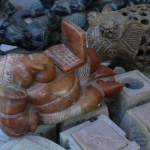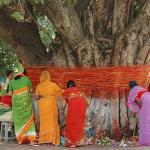Prior to this century…. the Indian IT firms seized the once in a millenium opportunity provided to them by the Y2K!! They sent armies of software programmers to Western companies.. and by the time Y2K was well past us.. they had made serious inroads into the Fortune 500!
I believe that if this pandemic strikes.. which everyone and his bro is saying it will… then the BEST suited to profit from it – if you will – will be the Indian Pharma companies.. if they are alert to it!! They just need to get around the patenting issue. Even if that does not happen… they should be ready with enough capacity and talent.. ready to ramp up the production in matter of days! Because try as it might.. Roche or any other company is in capable of doing it on its own.. and when the crunch comes.. they will turn to the Indian Pharmas to fill the gap! So, if these Indian companies have their own indigenous drug by then.. great.. otherwise.. the opportunity will lie in bearing the burden of production for the Roche’s!
There is no evidence yet – at least officially – that a bird flu pandemic will sweep the country, but to tackle the potential, growing threat India is already feverishly working to be ready to combat the disease should it strike.
India is taking initiatives that range from facilitating production of cheaper alternatives of the only medicine for bird flu to discovering newer methods of spotting the carriers and developing a kit to detect the flu in a day. As well, the country is also trying to contribute to the global fight against a possible pandemic.
“India is working towards full preparedness,” said an official from the Ministry of Health. “And some of the steps the country is taking will also help the global efforts in fighting the disease.” Last week, the Indian government through an emergency marketing permit allowed Swiss drug maker Roche to sell its antiviral drug
Tamiflu in the country. Moreover, since Tamiflu is the only “reasonably effective” drug to combat the disease, the Health Ministry has also constituted a high-level committee to decide on whether to exercise the patent overruling power that the ministry holds so that other drug companies can manufacture this drug without Roche’s permission.
“In emergency-like situations, India under the World Trade Organization agreement has a clause called Compulsory Licensing [CL], which can be invoked,” said Health Minister Dr Ambumani Ramadoss. CL is a provision in the WTO’s trade-related intellectual property rights agreement that allows governments to sidestep patents to combat public health crises.
Once the CL is issued, India’s generic drug makers would be free to make copies of Tamiflu, not only for the domestic market, but also for export. According to Ramadoss, this would make a bird-flu antidote available to other, mainly developing or poorer, countries at a price much cheaper than the patented drug. Roche is often accused of selling Tamiflu at a price (about US$40 to $60 for 10 tablets) unaffordable in many countries.
The company also lacks the capacity to produce the drug in sufficient amounts, though it now says it will be able to produce 300 million Tamiflu treatments annually by 2007. At least three Indian drug makers, Ranbaxy, Cipla and HeteroDrugs, have announced that they are already equipped and willing to manufacture the drug.
These companies said that they were even prepared to take the risk of preemptive stockpiling for export. For instance, according to a report in the Times of India, Cipla would start selling its generic version in India as well as in 49 developing countries in the Middle East, Southeast Asia and Latin America as of March 1.















